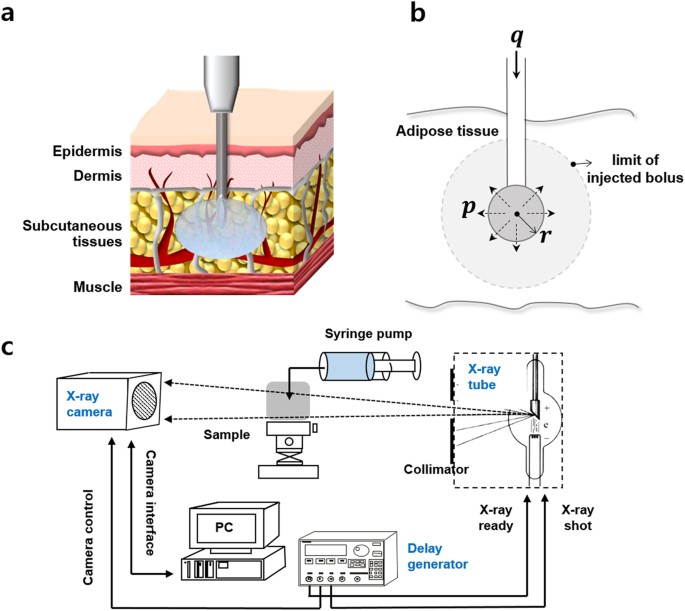Allergy Shots Sub Q
Posted : admin On 3/28/2022
Allergy shots, or subcutaneous immunotherapy, is a treatment offered at Columbia Allergy to manage your severe allergy symptoms caused by substances in your environment such as dust, pollens, molds, weeds, trees, cats, dogs, and more. How do Subcutaneous Immunotherapy (Allergy Shots) work? The extract vaccine “trains” the immune system to not to respond to an allergen (eg. Animal dander, venom, etc.). One of the several ways that the allergen immunotherapy works is by stimulating the production of “blocking” antibodies by the immune system. Allergy shots, also known as subcutaneous immunotherapy (SCIT), have been a proven allergy treatment for more than 100 years. They are the only treatment that changes the immune system. They prevent new allergies and asthma from developing and have a lasting beneficial effect, well after therapy has been completed. Immunotherapy, also known as allergy shots, is a method of changing the immune system to decrease symptoms related to allergies. By injecting small amounts o.
Are Allergy Shots Given Sub Q
Got a pup with an itch that can't be scratched? Great news: a novel, non-pharmaceutical pruritus treatment called Cytopoint has been approved in the U.S., promising to relieve itching in millions of dogs.
Itching for relief
Itchy dogs pose a frustrating clinical challenge for veterinarians. Seasonal allergies, or atopic dermatitis, affect an estimated 10% of all dogs. While the exact cause is unknown, genetics are thought to play a major role in determining if your dog suffers from recurrent itching and scratching.
Canine atopy or the red, burning, itchy skin that accompanies pollen, mold, dust mite, or other environmental allergens, is one of the leading reasons pet parents rush their dog to the veterinarian. Most dogs experience worsening symptoms over time, leading to pain and discomfort, skin infections, and diminished quality of life. Allergic dogs don’t sleep well, constantly lick and chew, and lose interest in play and interaction.

In short, dogs suffering from skin allergies are miserable.
Conventional allergy treatments for dogs
Treatment has traditionally been aimed at reducing exposure to allergens (good luck) and a wide variety of anti-inflammatory medications, nutritional supplements, bathing techniques, foods and allergy shots for dogs. Hypo- or de-sensitization injections helped about half of treated canines. If we could control 70% to 80% of a pet’s itching, that was considered a win.
For serious cases, veterinarians would often turn to corticosteroids, potent drugs that carry side effects and risks we’d rather reserve for severe symptoms. Regardless of treatment combinations and clever formulations, canine allergic dermatitis remained a tremendous challenge.

But now, a new drug that works in an innovative way has arrived to offer relief for itchy dogs.
Cytopoint treatment for dogs

Allergy Shots Sub Q
The drug is called Cytopoint, from the pet pharmaceutical company Zoetis. Cytopoint isn’t a drug; it’s a biological therapy. It contains engineered antibodies, the cells the body uses to fight injections, to target and neutralize a signal protein that induces itching. In simplest terms, Cytopoint stops the itch signaling protein from reaching the brain, reducing or eliminating the itch-scratch cycle.
This is important because it’s the incessant scratching that damages the skin and leads to complications (and keeps your dog up all night chewing). If the scratching ceases, the skin can heal.
The manufacturer has shown a single subcutaneous Cytopoint injection can relive itching in dogs for four to eight weeks. The treatment begins working within a day, and research demonstrates skin healing begins within a week.
The safety studies submitted for FDA approval showed a wide safety margin with no side effects reported other than occasional injection site discomfort. Cytopoint was tested in combination with steroids, antihistamines, antibiotics, parasiticides, antifungals, vaccines, and many more medications without any observed interactions or adverse events.*
Even more exciting, Cytopoint doesn’t suppress the immune system, alter hormones, and potentially damage the liver the way corticosteroids could.
Cytopoint side effects
The manufacturer claims Cytopoint is similar to treating atopy with steroids without the potentially dangerous side effects. The treatment is naturally broken down and recycled by the body, avoiding excretion by the kidneys and liver like most medications, especially steroids. If these reviews hold up in rigorous real-world usage, that’s a huge breakthrough in my book.
If your dog suffers from atopic dermatitis, it’s worth asking your veterinarian about this new treatment prior to allergy season. In clinical trials, about 70% to 80% of pet parents reported less itching and scratching, especially during the first four weeks.
These initial results are encouraging; I’m eager to see how the treatment works in larger populations of dogs under diverse environmental conditions. If Cytopoint performs as well as claimed, this could be a game changer in the management of canine atopic dermatitis.

Allergy Shots Subq Or Im
An insurer who cares about your pets (nearly!) as much as you do.